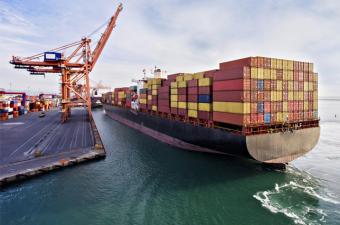
OVERVIEW
In Globalink Transportation and Logistics Worldwide LLP v DHL Project & Chartering Ltd [2019] EWHC 225 (Comm) (19 February 2019), the Commercial Court considered the scope of the rule in The “Aries” [1977] 1 WLR 185 (HL), which precludes set-off against freight, and decided that the rule does not extend to freight-forwarding contracts.
Defendants to claims for money due under commercial contracts often seek to defend on the basis that they have a counterclaim, which should be set-off to extinguish or reduce the claimant’s claim. Broadly speaking, English law allows this sort of defence to be advanced, particularly where the counterclaim arises out of the same contract as the claim.
But there is an exception in the case of claims for freight under a contract of carriage. In such cases, no defence of set-off is permitted. The carrier is entitled to its freight – and can obtain summary judgment for it – even if the defendant has a counterclaim with a real prospect of success. The defendant must pay the freight and decide whether to pursue the counterclaim as a freestanding claim.
Since the no set-off rule was confirmed in The Aries, it has been held to apply to all sorts of counterclaims (see, for example, The “Elena” [1986] 1 Lloyd's Rep 425) and to extend to claims in respect of carriage by land as well as carriage by sea; see RH&D International Ltd v IAS Animal Air Services Ltd [1984] 1 WLR 573 (international land carriage) and United Carriers v Heritage Food Group (UK) Ltd [1996] 1 WLR 371 (domestic land carriage). Recently, it was held to extend to carriage by air; Schenker Ltd v Negocios Europa Ltd [2018] 1 WLR 718.
However, in Globalink v DHL the Commercial Court declined to extend the rule further, whether to freight forwarding contracts generally or to the particular project cargo forwarding contract in issue.
DHL was engaged by its client, Sinopec, to arrange the carriage of large items of plant and machinery from China to Atyrau, Kazakhstan, where they were required for use in a refinery modernisation project. DHL sub-contracted the arrangement of carriage from Novorossiysk on the Black Sea to Atyrau to the claimant, Globalink, and a price was agreed for the transportation.
2 barges laden with the cargo set out from Novorossiysk on the same day. One of them made it to Atyrau in good time. The other failed to reach its destination. It had made slow progress and its draught was too deep to complete the final leg of the voyage, from the Caspian Sea to Atyrau, before the Ural-Caspian Canal closed to navigation for winter. The cargo was stored over winter. The next spring, DHL engaged Globalink to arrange for the carriage, to Atyrau from the place of storage, to be completed, and it was completed, at substantial additional cost.
DHL refused to pay the final two instalments in respect of the transportation to Globalink. It maintained that breaches of the contract on Globalink’s part had caused the cargo to fail to reach Atyrau as originally planned and that it had a counterclaim that extinguished Globalink’s claim.
Globalink applied for summary judgment. It contended both that DHL’s counterclaim had no real prospect of success and that in any case the rule in The “Aries” applied and so a set-off defence was unavailable.
Although it was a summary judgment application, the Judge (Nicholas Vineall QC) decided to ‘grasp the nettle’ and finally decide the set-off point. Having been satisfied that the counterclaim was well arguable, he concluded that a set-off defence was in principle available, holding that “the rule in The Aries does not extend, and should not be extended, to cover the services provided by a freight forwarding agent, when those services are to arrange the carriage of goods”.
Summary judgment was accordingly refused. The Court was willing, however, to make a conditional order, requiring payment into court of a small proportion of sum claimed. In Britannia Distribution v Factor Pace [1998] 2 Lloyds Rep 420, it was held that freight forwarders acting as agents had the benefit of the no set-off rule to the extent that they could show that the sum of which they sought payment was in respect of freight that they had paid to a carrier. Here, the Judge was satisfied that an underlying US$113,000 of the c.US$1.65 million claimed had been shown to be freight payable to a carrier, albeit in the absence of proof of payment by Globalink the appropriate course was a conditional order in respect of the sum in question, rather than summary judgment for it.
Emmet Coldrick, instructed by Barrett Solicitors, acted for DHL.

